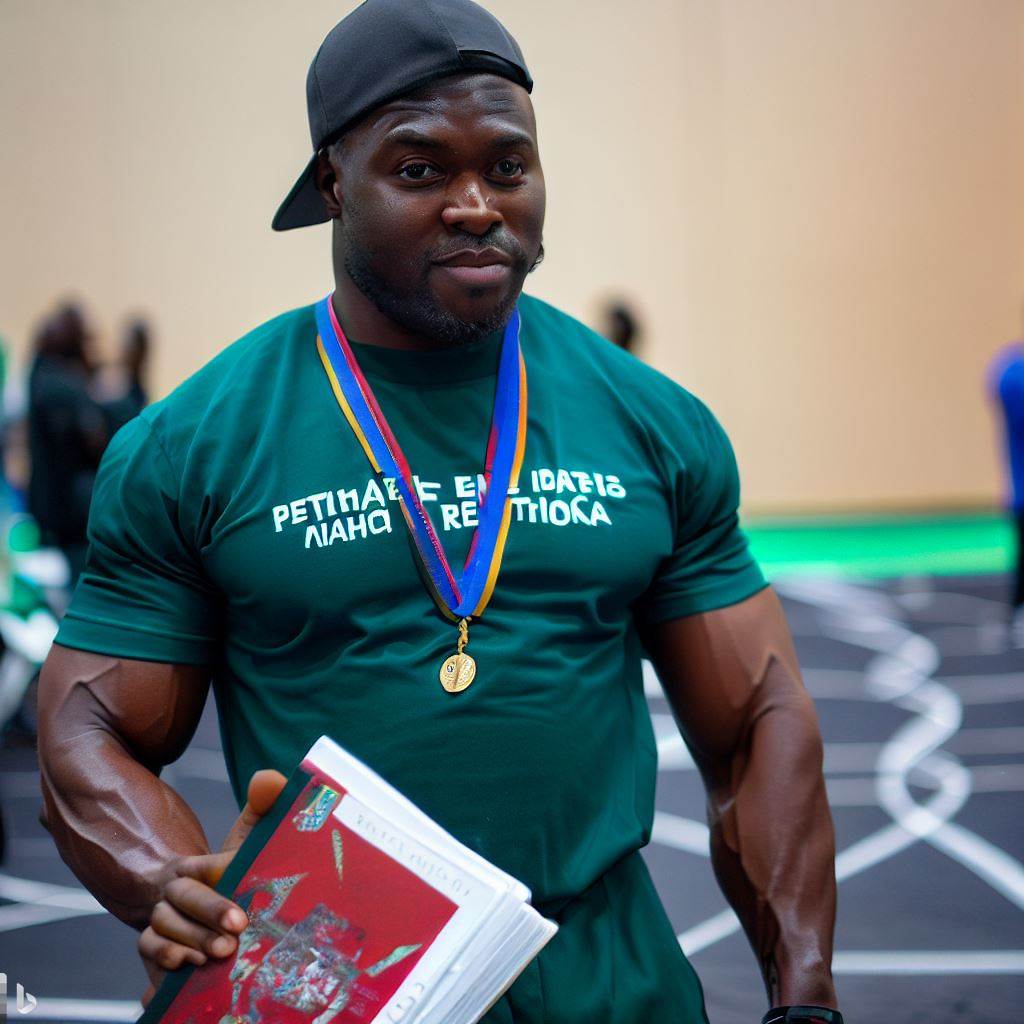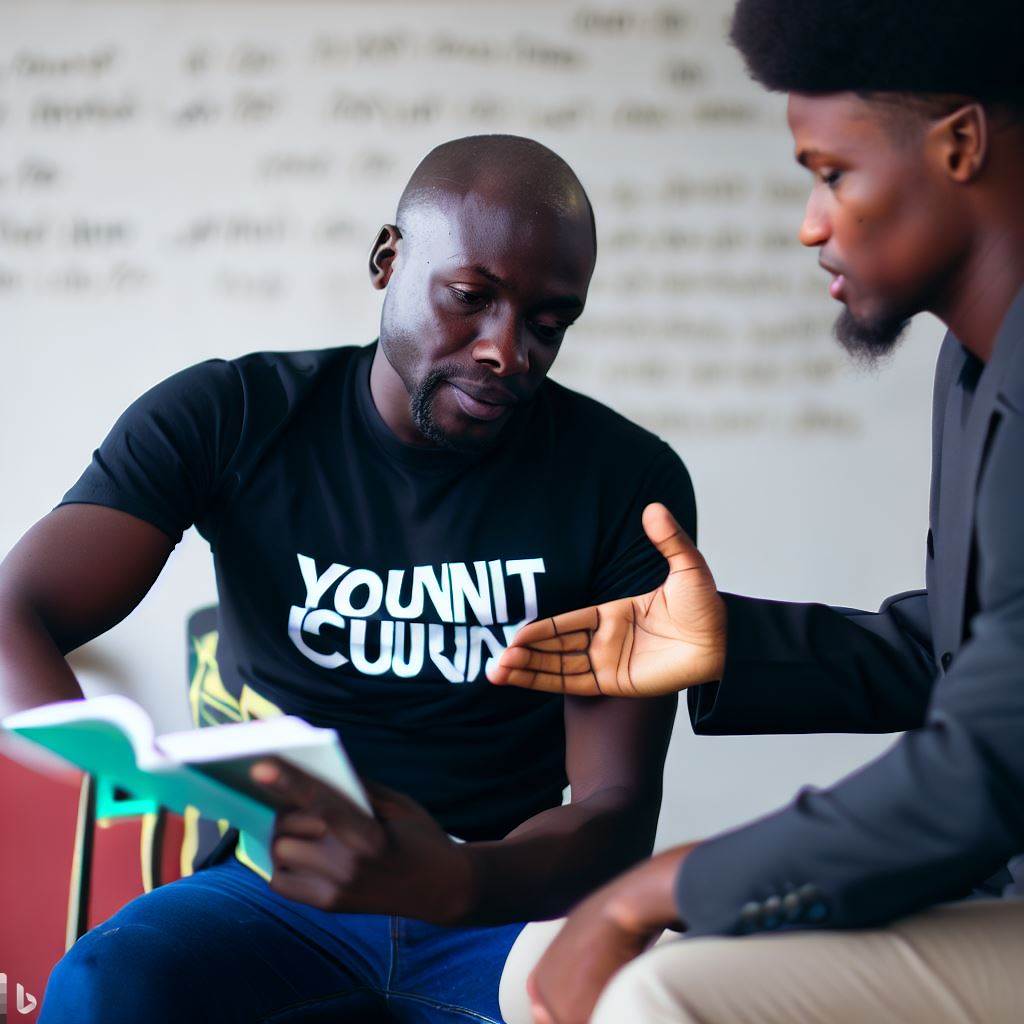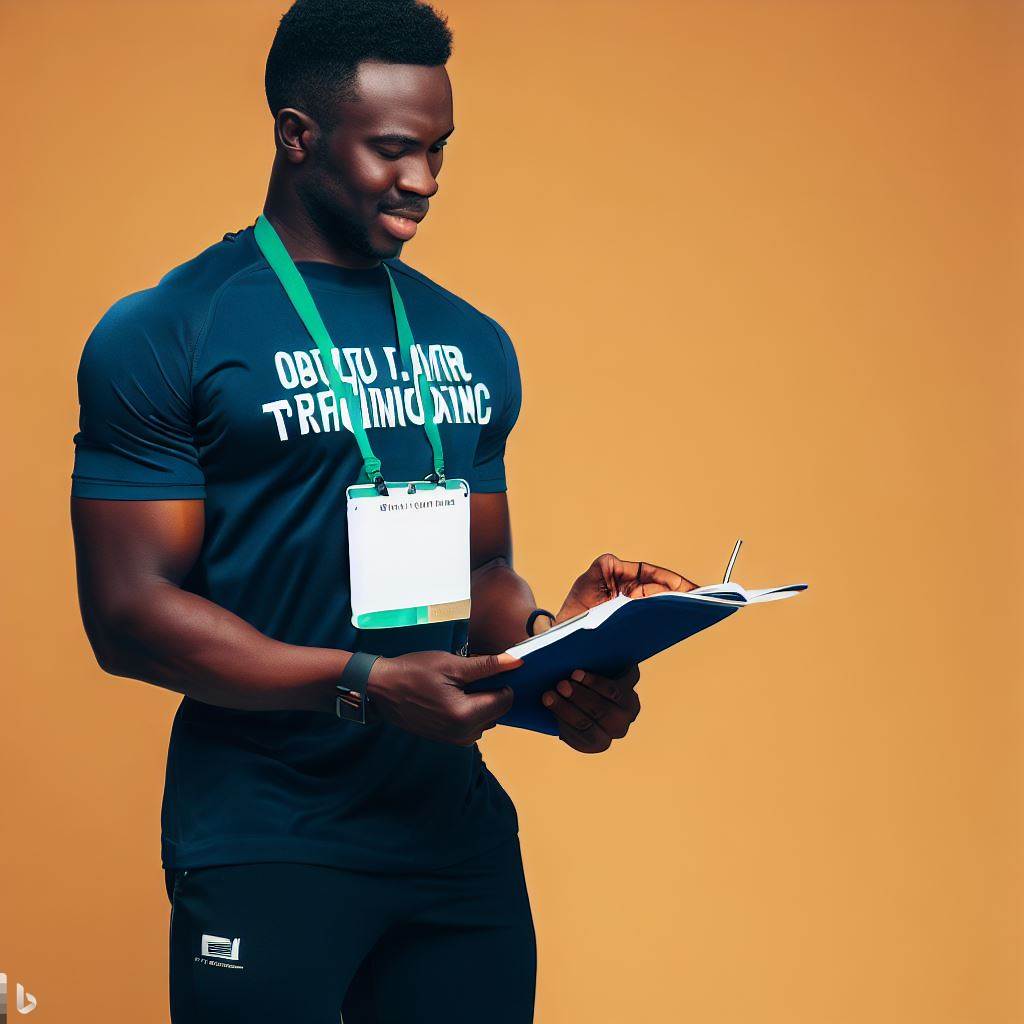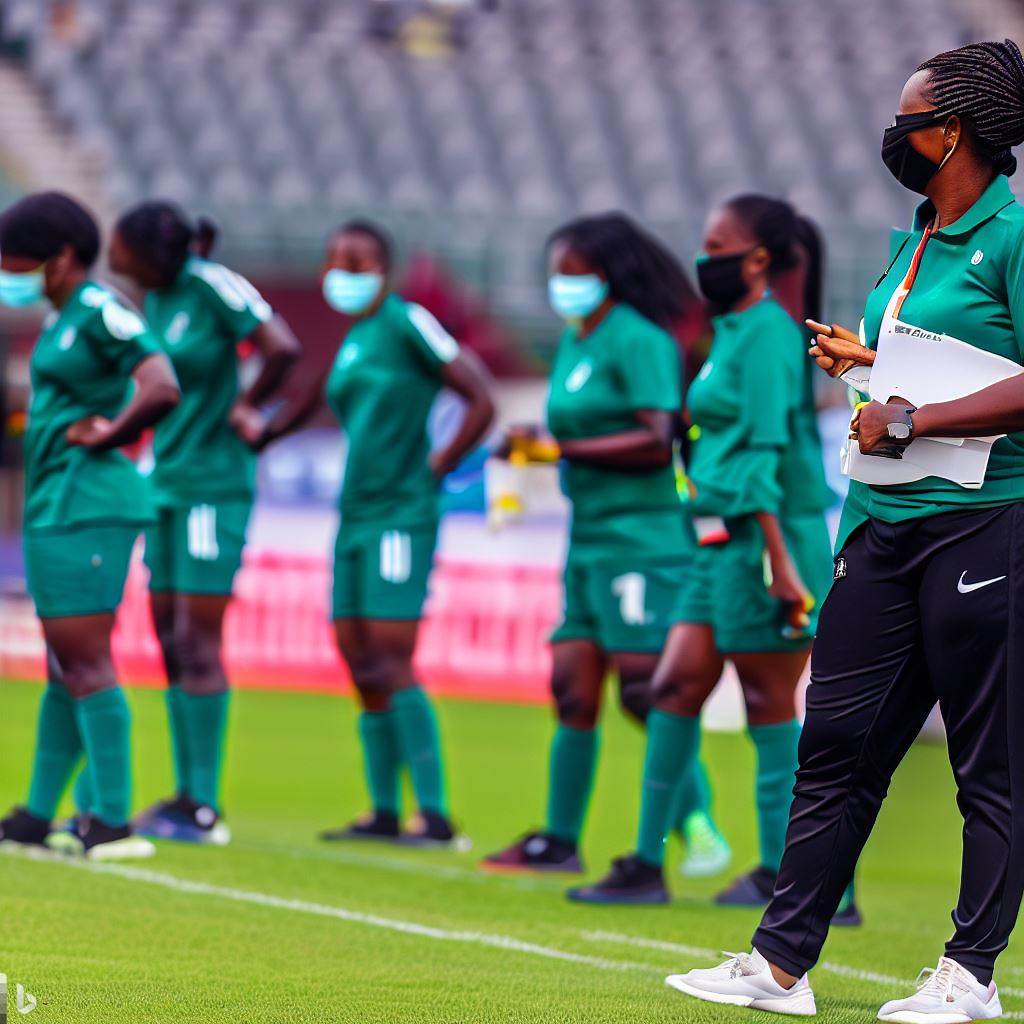Introduction
Strength coaching plays a crucial role in Nigeria as it helps develop athletes and improve performance. However, there is a need for educational paths for strength coaches.
These paths would provide them with the necessary knowledge and skills to effectively train athletes and ensure their success.
With proper education, strength coaches can enhance sports performance in Nigeria.
Strength coaching is vital in Nigeria, and here’s why:
- Athletic Performance: Strength coaches enhance athletes’ performance, crucial in a sports-loving nation like Nigeria.
- Injury Prevention: They play a pivotal role in preventing injuries through proper training techniques.
- Fitness and Health: Strength coaches promote fitness and overall well-being among the population.
- Youth Development: Nurturing young talents is key; strength coaches are essential for youth sports development.
Now, let’s discuss the pressing need for educational paths for strength coaches:
- Specialized Knowledge: Strength coaching demands specific expertise; structured education provides this knowledge.
- Professionalism: Formal education instills professionalism and ethics in strength coaching practices.
- Quality Assurance: Education ensures coaches adhere to high standards, benefiting athletes and clients.
- Career Progression: Educational paths enable career growth, from entry-level to advanced coaching roles.
- Competitiveness: In a growing fitness industry, educated coaches stand out and attract more opportunities.
- Innovation: Education keeps coaches updated on the latest training methods and technologies.
- Global Recognition: Internationally recognized qualifications open doors for Nigerian strength coaches worldwide.
In general, establishing educational paths for strength coaches is vital for Nigeria’s athletic development, ensuring top-notch coaching and fostering a healthier, more competitive nation.
Current State of Strength Coaching in Nigeria
Strength coaching plays a vital role in enhancing athletic performance and preventing injuries.
Lack of standardized education and certification programs
However, in Nigeria, the field of strength coaching lacks standardized education and certification programs.
This deficiency hinders the growth and development of strength coaching in the country.
One of the primary challenges faced by strength coaches in Nigeria is the absence of standardized education and certification programs.
Unlike in other countries, there is no formal system in place to educate and certify strength coaches.
This lack of structure leads to inexperienced individuals entering the field without the necessary knowledge and skills.
Role of informal apprenticeships and mentorship
In the absence of formal education programs, many strength coaches in Nigeria rely on informal apprenticeships and mentorship to acquire their skills.
This approach involves learning on the job under the guidance of experienced coaches.
While apprenticeships and mentorship can be valuable, they do not provide a standardized curriculum or ensure the competence of the coaches being trained.
Without standardized education and certification programs, there is a risk of inconsistent quality among strength coaches in Nigeria.
The lack of a standardized curriculum means that coaches may have gaps in their knowledge or be unaware of the latest research and techniques in the field.
This can hinder their ability to effectively train athletes and maximize their performance.
Read: Licensing & Certification for Sports Info Directors in Nigeria
Importance of Formal Education for Strength Coaches
Enhancing knowledge and expertise
In the world of sports, strength coaches play a crucial role in enhancing athlete performance.
These professionals focus on developing strength, agility, and overall fitness levels of their clients.
Nigerian strength coaches have a range of educational paths available to them, each with its own benefits and opportunities.
Ensuring professional standards and ethical practices
There are several educational paths that Nigerian strength coaches can take to acquire the necessary knowledge and skills.
These paths include:
- Bachelor’s Degree in Exercise Science or a related field: Pursuing a bachelor’s degree equips strength coaches with a comprehensive understanding of the human body, exercise principles, and sport-specific training techniques.
This degree program often includes practical experience, internships, and research opportunities. - Master’s Degree in Strength and Conditioning: A master’s degree provides in-depth knowledge and specialization in the field of strength and conditioning.
It covers advanced topics like performance enhancement, sports psychology, athlete testing, and program design.
This degree can open doors to higher-level coaching positions and research opportunities. - Accredited Certification Programs: There are various accredited certification programs available for strength coaches.
These programs focus on practical skills and hands-on experience, allowing coaches to gain valuable expertise in the field.
Some notable certifications include the Certified Strength and Conditioning Specialist (CSCS) and the Certified Personal Trainer (CPT) credentials. - Continuing Education and Professional Development: Even after completing a formal education or obtaining a certification, strength coaches must stay updated with the latest trends and best practices.
Attending workshops, seminars, conferences, and online courses keeps coaches abreast of advancements in the field and helps them refine their skills.
By pursuing formal education and certifications, Nigerian strength coaches can set themselves apart in the competitive sports industry.
They gain the necessary expertise to work with athletes of all levels, from beginners to elite professionals.
Read: Challenges Facing Athletic Directors in Nigeria Today
Available Educational Paths for Nigerian Strength Coaches
When it comes to pursuing a career as a strength coach in Nigeria, there are various educational paths available to aspiring individuals.
These paths include degree programs, certification programs, as well as workshops and seminars.
Degree Programs
- Bachelor’s Degree in Sports Science: To acquire a Bachelor’s Degree in Sports Science, individuals can enroll in universities or colleges offering this program.
This degree equips students with the knowledge and skills necessary for coaching athletes, including strength training techniques, sports nutrition, and sports psychology. - Bachelor’s Degree in Physical Education: Another option is to pursue a Bachelor’s Degree in Physical Education.
This program focuses on educating students about physical fitness, sports coaching, and exercise science. Strength training principles are often covered as part of the curriculum. - Bachelor’s Degree in Exercise Physiology: Individuals can also opt for a Bachelor’s Degree in Exercise Physiology.
This degree program delves into the study of the body’s response to exercise and physical activity. Strength training principles and techniques are integral components of this program.
Certification Programs
- International Strength and Conditioning Association (ISCA) Certification: The ISCA offers certification programs for strength and conditioning coaches.
These programs provide individuals with the necessary knowledge and practical skills to train athletes effectively.
Certification exams assess the candidates’ understanding of strength training principles, program design, and injury prevention. - National Strength and Conditioning Association (NSCA) Certification: The NSCA also offers certification programs that are internationally recognized.
These programs cover topics such as exercise techniques, program design, and sports nutrition.
To become certified, individuals must pass both a written examination and a practical skills assessment. - Strength and Conditioning Education Diploma (SCED): The Strength and Conditioning Education Diploma (SCED) is a comprehensive program designed to enhance coaching skills for strength and conditioning professionals.
It covers various aspects of strength training, including exercise science, injury prevention, and athlete performance optimization.
Workshops and Seminars
- Local workshops and seminars by reputable organizations : Various organizations in Nigeria conduct workshops and seminars on strength training and coaching.
These events provide opportunities for strength coaches to enhance their knowledge and skills, learn from industry experts, and stay updated with the latest trends in the field. - International conferences and events : Strength coaches can also benefit from attending international conferences and events focused on sports science and strength training.
These gatherings attract renowned experts and provide a platform for networking, learning new techniques, and gaining exposure to cutting-edge research.
Nigerian strength coaches have diverse options to pursue educational paths in their field.
Degree programs, certification programs, and workshops/seminars all offer valuable opportunities for learning, skill development, and professional growth.
By acquiring the necessary education and certifications, aspiring strength coaches can enhance their expertise and contribute to the development of sports in Nigeria.
Read: A Career Guide: Becoming an Athletic Director in Nigeria

Challenges Faced by Nigerian Strength Coaches
Strength coaches in Nigeria encounter several challenges that hinder their professional development and the overall growth of the industry.
These challenges include limited access to quality education and resources, as well as a lack of recognition and support from sports organizations.
1. Limited access to quality education
Strength coaches in Nigeria face difficulties in accessing quality education and training programs.
The lack of specialized institutions offering courses on strength coaching limits their opportunities for professional growth.
Many aspiring coaches are forced to pursue general sports science degrees or rely on self-study.
2. Limited access to resources
Nigerian strength coaches often struggle to access the necessary resources to enhance their coaching abilities.
This includes a shortage of training facilities, modern equipment, and scientific literature.
The lack of financial investment in the industry hampers coaches’ ability to provide the best possible support to athletes.
3. Lack of recognition and support
Strength coaches in Nigeria also face a lack of recognition and support from sports organizations.
They often encounter difficulties in securing coaching positions or receiving adequate compensation for their services.
This lack of support undermines their motivation and limits their ability to make a meaningful impact on athletes.
4. Limited professional development opportunities
The absence of specialized institutions and training programs in Nigeria restricts strength coaches’ professional development.
They have limited access to workshops, conferences, and mentorship opportunities that could enhance their coaching techniques and knowledge.
This hinders their ability to stay updated with the latest advancements in the field.
5. Lack of standardized certification
In Nigeria, there is no standardized certification process for strength coaches. This leads to a lack of credibility and inconsistency in coaching practices.
The absence of a recognized certification process makes it difficult for coaches to establish trust with athletes and sports organizations.
Read: Roles of an Assistant Coach in Nigerian Sports Teams
Solutions and Steps Forward
When it comes to addressing the educational paths for Nigerian strength coaches, several solutions and steps forward can be taken:
Advocating for the inclusion of strength coaching in sports curriculums
One of the crucial steps is to advocate for the inclusion of strength coaching in sports curriculums across educational institutions in Nigeria.
This will ensure that aspiring strength coaches have access to formal education and training in their chosen field.
Collaboration between government, sports organizations, and educational institutions
Efforts must be made to foster collaboration between the government, sports organizations, and educational institutions.
By working together, they can develop comprehensive programs and initiatives that support the growth and development of strength coaching in the country.
Establishing mentorship programs and apprenticeships
An effective way to bridge the gap in educational paths is by establishing mentorship programs and apprenticeships.
Experienced and qualified strength coaches can mentor and guide aspiring individuals, providing them with hands-on experience and practical knowledge.
By implementing these solutions and steps forward, Nigeria can create a strong foundation for the educational paths of strength coaches.
This will not only enhance the quality of coaching and performance in sports but also contribute to the overall development of sports in the country.
Conclusion
Educational paths for Nigerian strength coaches play a crucial role in shaping the sports industry in Nigeria.
These paths not only provide coaches with essential knowledge and skills but also ensure the overall development of athletes.
By pursuing suitable educational programs, coaches can enhance their understanding of sports science, injury prevention, and performance optimization.
The impact of well-educated coaches goes beyond individual athletes, spreading to various sports and contributing to the growth of the Nigerian sports industry as a whole.
Through continuous learning and professional development, coaches can devise effective training programs, implement modern techniques, and guide athletes towards achieving their full potential.
Ultimately, investing in the education of Nigerian strength coaches will result in improved coaching standards, enhanced athlete performance, and the elevation of Nigerian sports on a global platform.
Thus, it is crucial for stakeholders to prioritize the establishment and support of educational pathways for Nigerian strength coaches.




